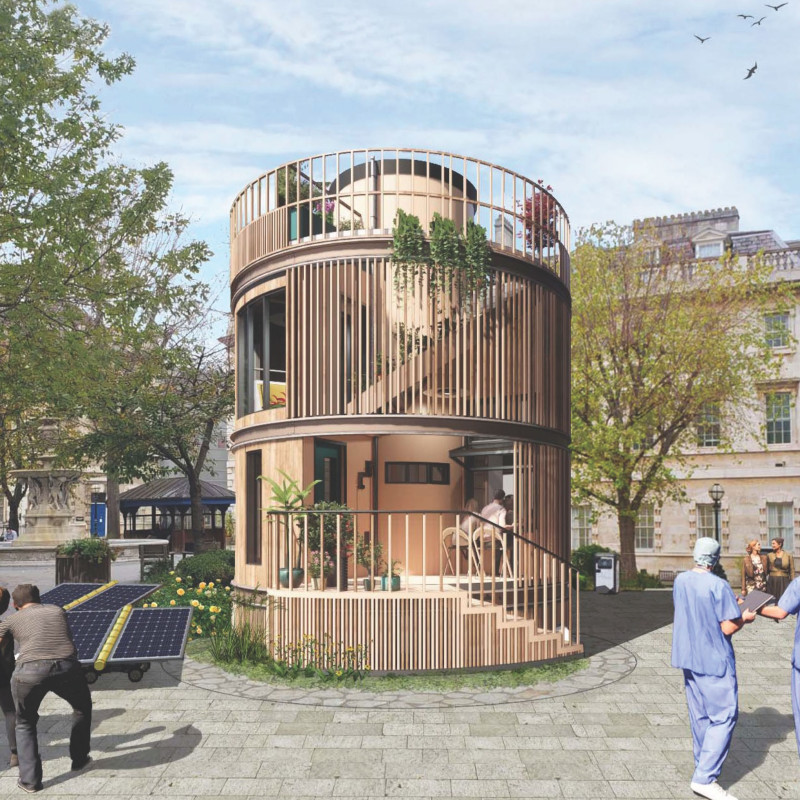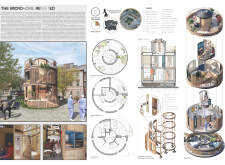5 key facts about this project
The Microhome Revisited project presents a thoughtful approach to compact living during the challenges brought on by the coronavirus pandemic. Located in the courtyard of St. Bartholomew's Hospital, the design focuses on fulfilling the needs of young professionals while adapting to changing lifestyle demands. The concept emphasizes multifunctionality within a limited 25m² space, creating an environment that allows for both personal and communal activities in a harmonious way.
Design Concept
The interior layout features multifunctional spaces that blend work and leisure. At its core is a day-lit bathroom that enhances the feeling of openness and light throughout the home. The design is modular, allowing each area to serve various purposes depending on the occupants' needs. This flexibility is central to maximizing livability within a small footprint.
Spatial Organization
On the ground floor, a dedicated area provides a place for visitors, addressing the isolation many experienced during lockdowns. Large folding windows blur the lines between inside and outside, inviting fresh air and natural light into the space. Furniture can be arranged in multiple ways, making it suitable for everything from family gatherings to socially distanced meetings with friends.
Vertical Circulation
Access to the upper level is through a slender spiral staircase, which makes efficient use of vertical space and adds to the sense of openness. The bedroom on this upper level serves as a private retreat, connecting thoughtfully with the garden and sky above. This layout encourages a relationship with nature while providing a quiet space to unwind away from daily stresses.
Sustainability
Sustainable practices are evident in the choice of materials, which include larch and beech timbers that are responsibly sourced. Movable photovoltaic panels further enhance the design's energy efficiency, pointing to a commitment to environmental considerations. These elements work together to meet not only the immediate needs of residents but also contribute positively to urban living.
A rooftop garden offers a space for growing plants, fostering a connection with the outdoors. This feature adds both visual appeal and encourages gardening practices, enhancing the quality of life in the home.


















































